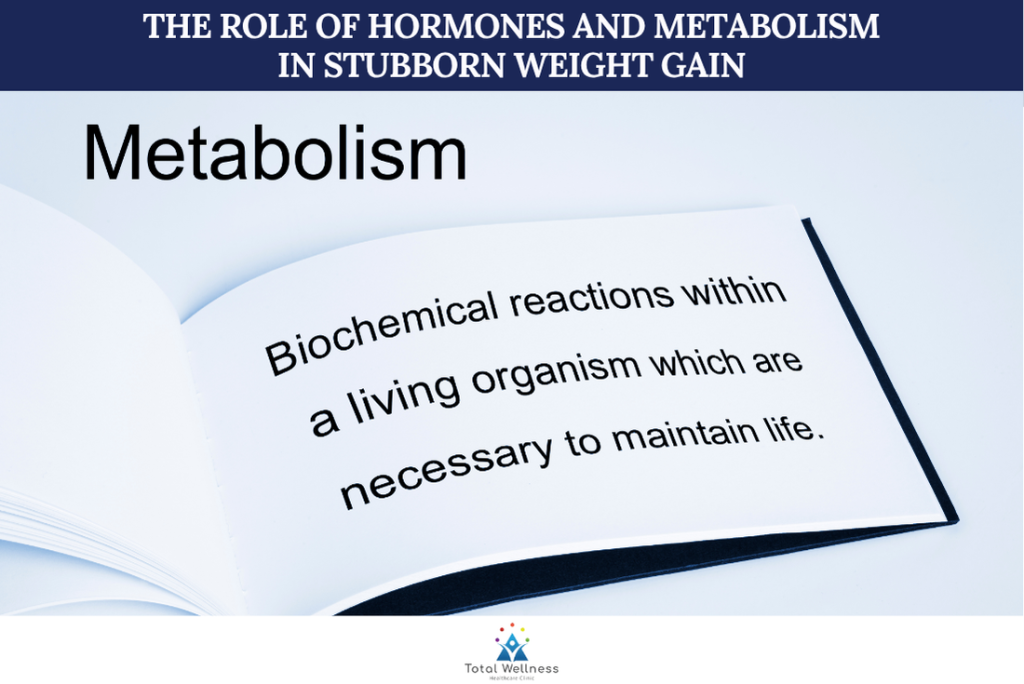 If you feel like you’re doing everything right—eating clean, exercising regularly, and watching your portion sizes—yet the scale refuses to budge, you’re not alone. Many individuals experience stubborn weight gain due to underlying factors that have nothing to do with willpower or diet. Two of the most overlooked culprits? Hormone imbalance and slow metabolism.
If you feel like you’re doing everything right—eating clean, exercising regularly, and watching your portion sizes—yet the scale refuses to budge, you’re not alone. Many individuals experience stubborn weight gain due to underlying factors that have nothing to do with willpower or diet. Two of the most overlooked culprits? Hormone imbalance and slow metabolism.
At Your Total Wellness Clinic, we take a deeper look at the biological reasons behind weight challenges and offer medical weight loss solutions tailored to your unique body chemistry. Here’s how hormones and metabolism can make or break your weight loss journey.
Understanding Metabolism and Weight Gain
Metabolism refers to how your body converts food into energy. A slow metabolism means your body burns fewer calories at rest, which can lead to weight gain even if your diet and activity levels remain consistent.
Common Causes of a Sluggish Metabolism:
- Aging (metabolism naturally slows with age)
- Low muscle mass
- Hormonal shifts
- Sedentary lifestyle
- Certain medications
When metabolism slows down, it becomes harder to lose weight and easier to gain it back, especially around the belly, hips, and thighs.
The Hormone-Weight Connection
Hormones are chemical messengers that regulate nearly every bodily function, including appetite, fat storage, and metabolism. When hormone levels are out of balance, the body may respond by holding onto fat or increasing hunger signals.
Key Hormones That Influence Weight:
- Insulin: Helps regulate blood sugar. Too much insulin can lead to fat storage and insulin resistance.
- Cortisol: Known as the stress hormone, high levels can increase cravings and abdominal fat.
- Thyroid hormones: Hypothyroidism (low thyroid) can cause fatigue, slow metabolism, and weight gain.
- Estrogen and Progesterone: Imbalances during menopause or perimenopause can affect fat distribution.
- Testosterone: Low testosterone in men and women may contribute to increased fat and reduced muscle mass.
Signs Your Hormones or Metabolism Might Be to Blame
- You gain weight despite healthy eating
- You struggle with belly fat that won’t budge
- You feel tired or foggy even after sleep
- You have cravings for sugar or carbs
- You experience mood swings or low libido
- You feel cold often or notice hair thinning
If these symptoms sound familiar, you could be dealing with a hormonal imbalance or metabolic dysfunction.
Medical Weight Loss Solutions That Work
At Your Total Wellness Clinic, we go beyond calorie counting. Our doctor-supervised weight loss programs start with comprehensive lab testing to assess:
- Hormone levels (thyroid, estrogen, testosterone, cortisol)
- Blood sugar and insulin
- Inflammation markers
- Metabolic rate and BMI
Based on your results, we create a personalized plan that may include:
- Prescription weight loss medications
- Nutritional counseling and meal planning
- Bioidentical hormone replacement therapy (BHRT)
- Fitness and strength-building recommendations
- Ongoing monitoring and adjustments
You’re Not Failing—Your Body Just Needs the Right Support
Weight gain isn’t always about overeating or laziness. Sometimes, your body is working against you due to factors outside your control. That’s why we emphasize science-backed, supportive strategies tailored to your biology.
Whether you’re facing slow metabolism weight gain or suspect a hormone imbalance, our team is here to help you get answers—and results.
Ready to get to the root of your weight gain?
Book a consultation with Your Total Wellness Clinic today and start your journey toward sustainable, healthy weight loss that works with your body, not against it.
Your Total Wellness Clinic — Empowering You with Real Answers and Real Results.
